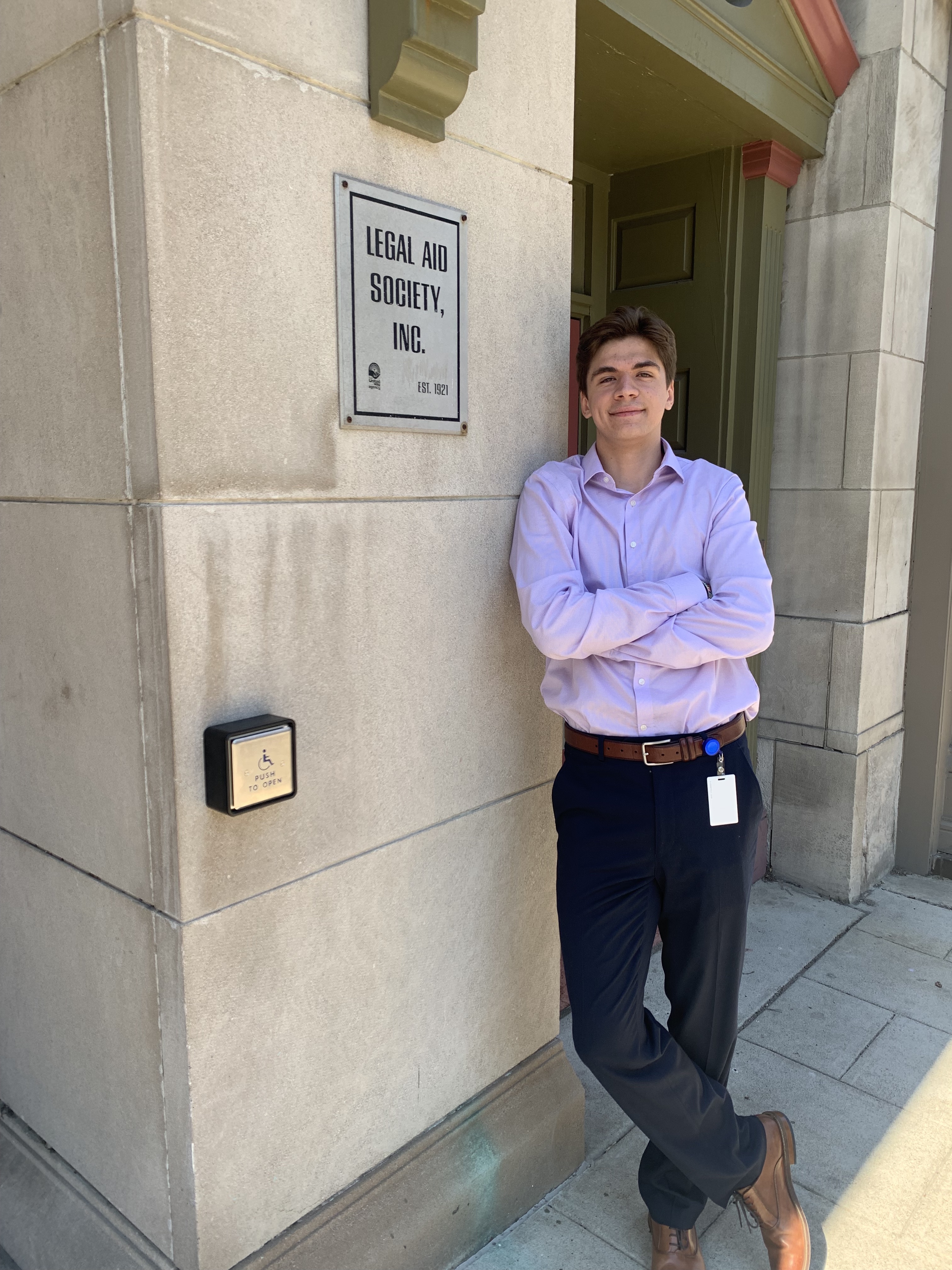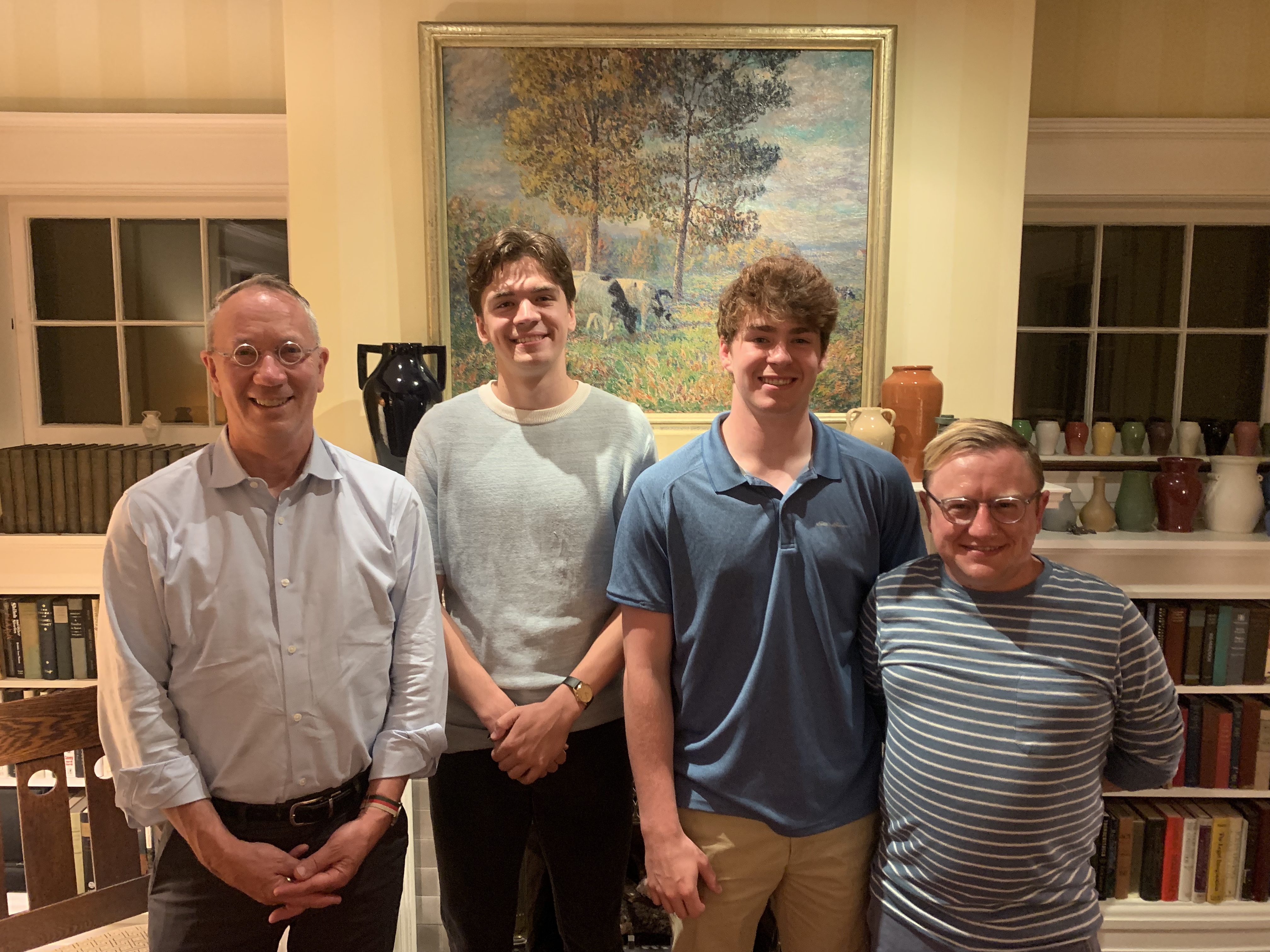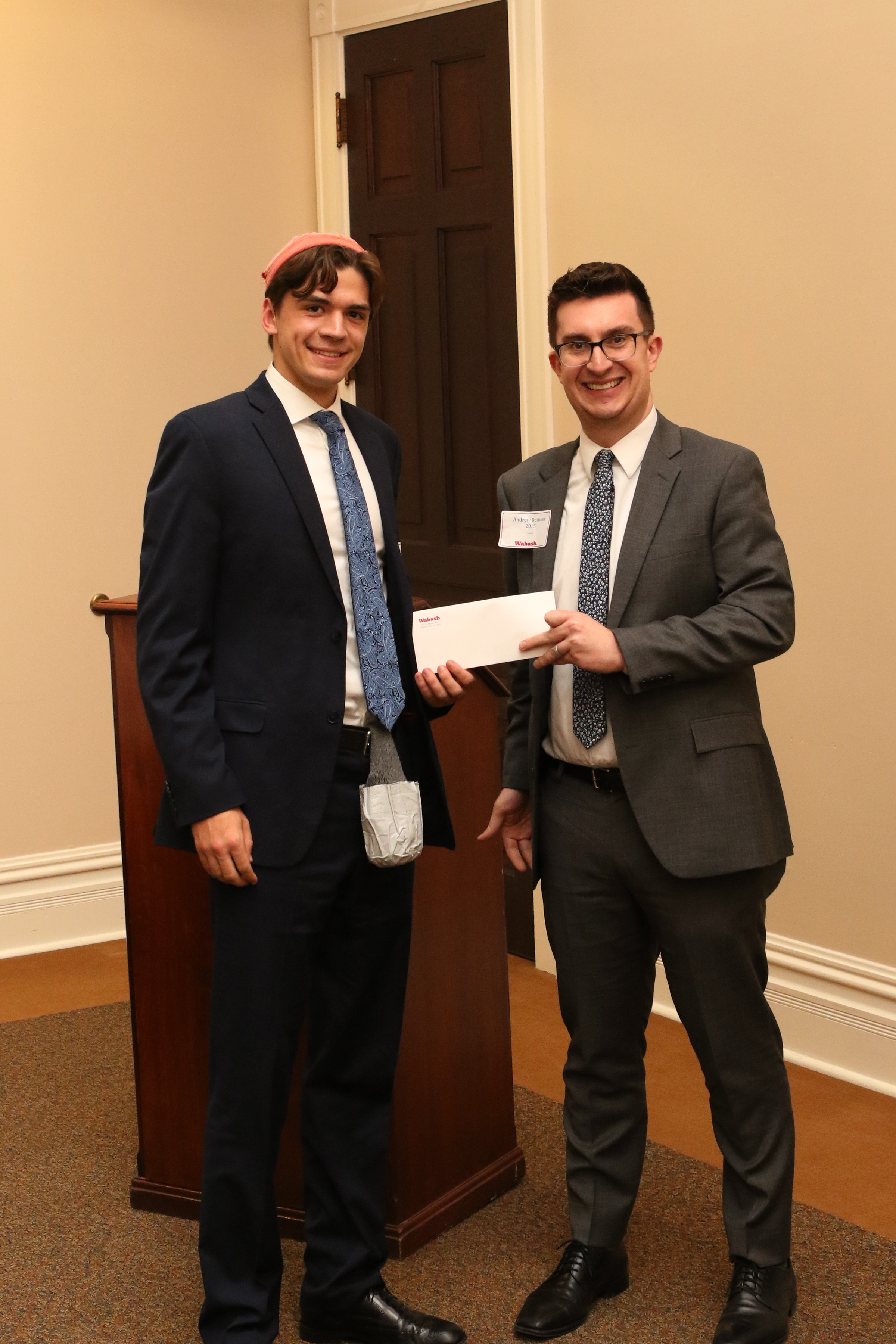Since the internship program’s inception in 2007, dozens of Wabash students have been given an opportunity that many interested in careers in law don’t get at the undergraduate level.
Nick Maraman ’10, Jacob German ’11 and Jacob Burnett ’15 — just to name a few — all interned for Legal Aid Society of Louisville, and have now gone on to lead success careers in law.
 Maraman works for the IRS Office of Chief Counsel in Louisville. German is an attorney at Barnes & Thornburg in Indianapolis. And Burnett is a Rhodes Scholar who just finished law school at the University of Pennsylvania and is now a law clerk at Williams & Connolly in D.C.
Maraman works for the IRS Office of Chief Counsel in Louisville. German is an attorney at Barnes & Thornburg in Indianapolis. And Burnett is a Rhodes Scholar who just finished law school at the University of Pennsylvania and is now a law clerk at Williams & Connolly in D.C.
The internship program at Legal Aid, a non-profit that provides free civil legal service to low-income Kentuckians, was established by former executive director Jeffrey Been ’81.
“Jeff created an opportunity with Legal Aid where Wabash students get so many opportunities all rolled into one internship,” said Scott Himsel, associate professor of political science and Wabash’s Pre-Law Advisor. “They get an opportunity to serve the underserved, to learn about how first-class non-profit organizations operate through fundraising and marketing, and to learn about themselves personally and where their future careers might take them.
“There’s extra credibility that comes in a student's law school application when they can say not only that they’re interested in public service, but they've actually done some.”
Even though Been retired from the organization seven years ago, the legacy and relationship between Legal Aid and Wabash has continued on.
Jackson Grabill ’24, a pre-law track PPE major and rhetoric minor from East Lansing, Michigan, spent his summer working as the Jeffrey Been ’81 intern at Legal Aid. In this role, he worked closely with the development and communications team, researching the history of Legal Aid, compiling client impact stories, and drafting grants.
Grabill also gained legal experience working with the Economic Stability Unit and Veterans Legal Assistance Program. He drafted petitions to help people expunge criminal charges from their records and carried out legal research and writing on issues related to Veterans Affairs benefits claims.
“I had the opportunity to observe attorneys working in different settings and on a range of legal issues,” Grabill said. “Whether it was observing a client intake meeting, divorce mediation, or eviction hearing in court, Legal Aid provided me with the opportunity to witness our justice system work firsthand.”
Through these experiences, and from what he’s pulled from his previous lessons at Wabash, Grabill has developed skills in written and oral communication, critical thinking and problem solving, and time management. Further, his overall knowledge of law practices, protocols and regulations has grown.

He’s also learned the importance of interpersonal skills — specifically having the ability to show and practice empathy — as an attorney.
“I saw a lot of client meetings where an attorney is there to help the client with whatever legal problem they have, and a lot of that help comes simply after listening,” Grabill said. “Legal Aid serves people who are below a certain income threshold, so oftentimes these clients don’t have the resources they need to get help. They feel stuck going through some of the toughest points of their lives, like bankruptcies or domestic violence orders.
“A lot of what it takes to be a good lawyer is done through client interactions and building connections,” the junior said. “I didn’t get to regularly talk with clients like the attorney. But in those moments when I did and asked a simple question like, ‘How’s your family doing,’ I saw that those remarks mattered. Those little moments can brighten someone’s day.”
Maraman, a former attorney and internship supervisor for Legal Aid, said he’s been impressed with Grabill since the beginning when he interviewed for the summer position. Not only did Grabill display the intelligence and commitment to a career in law, Maraman said, but he also showed an interest in helping people who are less fortunate.
“Not every 20-year-old college student is thinking about what they can do for those who are marginalized in our communities,” Maraman said. “That’s what stood out about Jackson in his interview, and through the time we spent together this summer. Not only is he a really, really smart kid and a sponge, but he has a good heart.”
Himsel echoed Maraman, and said the decision to pursue a career in law is a difficult, and it's one that “doesn't just involve intelligence, it also involves temperament.”

“Dealing with people who have difficult problems that they cannot resolve on their own, for which they need to seek counsel, that's hard work,” Himsel said. “Jackson has the abilities needed to do that hard work. He naturally thinks of law as a way to change the world and make society a better place.”
As part of the internship, Grabill also spent most of his summer networking with Been, who retired from Legal Aid 2015, and Maraman. Been generously hosted Grabill in his home, and Maraman acted as a mentor for the Wabash student during his internship. The two alumni also connected Grabill with other Louisville-area attorneys and judges.
“I am extremely grateful for their help, support, and friendship this summer,” Grabill said. “This experience would not have been possible without them.”
Grabill plans to attend law school after graduating from Wabash, and is most interested in pursuing a career focused in appellate or civil rights law.